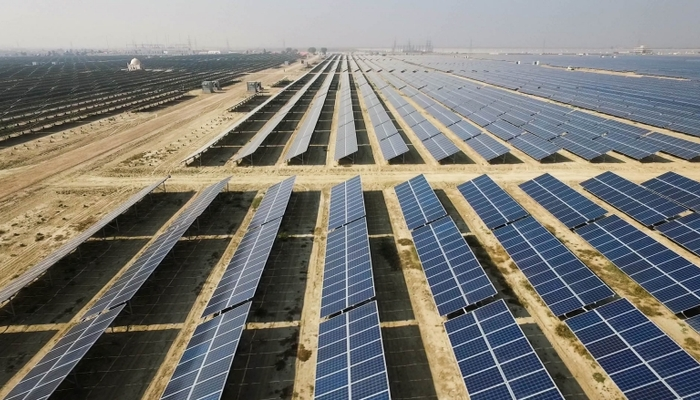The rapid adoption of solar energy in Pakistan has led to significant cost shifts for non-solar power consumers, resulting in an additional Rs200 billion burden in fiscal year 2023-24. The report “The Distributed Divide – How Solar Expansion Affects Non-Adopting Consumers and Utility Economics,” highlights the growing need for regulatory reforms to address these solar-driven inequities.
Rising Costs for Grid-Dependent Users
The report reveals that increased reliance on behind-the-meter solar systems and net metering has raised tariffs by approximately Rs2 per kilowatt-hour (kWh) for grid-reliant users. Without regulatory action, the financial burden on non-solar consumers is expected to grow, with projected additional costs of Rs131 billion for a 5% drop in grid demand or Rs261 billion for a 10% reduction in the current fiscal year.
This trend reflects inequities in cost distribution, as solar adopters bypass fixed grid maintenance costs, shifting these expenses onto non-solar users.
Inefficiencies in the Current System
A typical 10kW net metering system enables solar adopters to avoid grid costs of Rs20 per unit. Behind-the-meter systems bypass an average of Rs7 per unit in fixed costs. While this saves money for solar users, it reduces energy sales for distribution companies (DISCOs). This reduction can be of 8-10% during daylight hours, leading to higher costs for grid upkeep.
The study warns that this imbalance risks creating a “death spiral,” where rising tariffs and declining grid revenues drive more consumers toward off-grid solar solutions.
Technical Challenges Strain Infrastructure
Solar expansion has introduced new technical challenges for DISCOs. Voltage instability, reverse power flows, and increased demand for frequency regulation and reactive power support strain existing grid infrastructure. These issues necessitate significant investments, further exacerbating financial pressures on the energy sector.
The report also highlights the “duck curve” phenomenon, where midday solar generation reduces grid demand sharply, followed by steep evening surges. This fluctuation complicates grid management and requires innovative solutions to stabilize power supply.
Recommended Reforms
To address these challenges, the report emphasizes immediate regulatory reforms. Key recommendations include:
- Transitioning from Net Metering to Net Billing or Feed-in Tariff (FiT) Systems: This would help balance system marginal costs and lower tariffs.
- Implementing Fixed Grid Access Fees: These would ensure fair cost distribution among all users.
- Revising Distribution Codes: Adjustments would accommodate bi-directional power flows more effectively.
- Creating an Ancillary Services Market: This would provide stability through enhanced frequency regulation and reactive power management.
Ensuring Sustainability
The rapid growth of solar energy in Pakistan underscores the need for sustainable and equitable solutions. While solar power offers environmental benefits, unchecked expansion threatens grid sustainability and fairness for non-solar users.
Read: PPL Named Top Corporate Donor for 19th Consecutive Year
By implementing the proposed reforms, Pakistan can balance the benefits of solar energy. This approach ensures a fair distribution of costs and supports long-term grid stability. It will also safeguard the future of energy access for all consumers.
Follow us on Google News, Instagram, YouTube, Facebook,Whats App, and TikTok for latest updates
